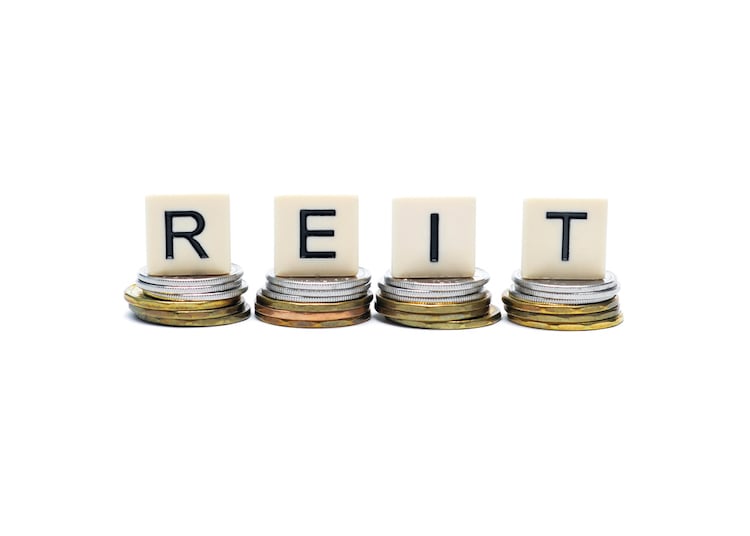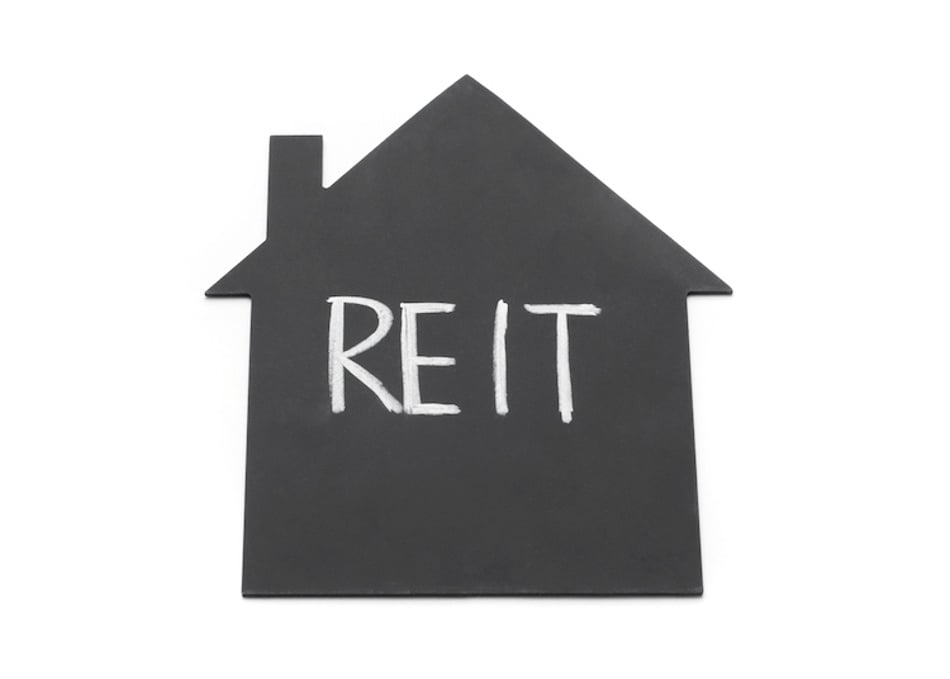Single-family rental (SFR) real estate investment trusts (REITs) make it possible to invest in SFR property without buying a home. While REITs are commonly known for investing in assets like apartments, hotels, and commercial real estate, SFR REITs are relatively new.
This article will explain what SFR REITs are and how they work, along with the pros and cons of investing in a REIT versus directly owning rental property.
Key takeaways
- Owning shares of an SFR REIT makes it possible to invest in rental real estate without directly owning a property.
- SFR REITs can be private or public, with shares traded on major stock exchanges.
- Rather than owning rental property directly, REIT investors own shares of a company that owns and manages SFR homes.
- The benefits of investing in an SFR REIT include the potential for dividend payments, opportunity for portfolio diversification, lower capital requirements, and less active management of the investment.
What is an SFR REIT?
An SFR REIT owns, operates, manages, or finances SFRs.
REITs can be publicly traded on major stock exchanges or available exclusively through private offerings.
Examples of publicly traded single-family REITs include Invitation Homes and American Homes 4 Rent, 2 of the largest owners and operators of SFRs in the U. S.
A good example of a private SFR REIT is Roofstock One, where accredited investors can purchase shares of Tracking Stocks that track the economic interests of curated, fully managed SFR properties or opt for Common Stock for broader diversification.

Benefits of investing in an SFR REIT
Real estate investors looking for a hands-off way to invest in SFR property may find an SFR REIT to be a good option.
Rather than owning property directly, investors own shares in a REIT that is responsible for purchasing and managing or financing rental property. Each REIT share represents a percentage of ownership, and investors receive a pro-rata percentage of any recurring income and profits generated by the REIT.
REIT investors don’t own property directly, and the REIT is responsible for managing the underlying assets, including potentially screening renters, collecting rent, and maintaining property.
Strong demand for SFRs
The market for SFR homes has been seeing strong demand from tenants and investors, keeping occupancy rates high, rent rates rising, and property values growing. According to the Q4 2021 Single-Family Rental Investment Trends Report from Arbor, single-family rent growth is up by 6.9% year over year, while cap rates reached a new all-time low of 5.3%. Declining cap rates indicate that buyers are willing to pay more for a net income stream, which in turn increases property values.
Dividend payments
REITs are required by law to pay out at least 90% of their taxable income to shareholders each year. Because of this requirement, owning shares in a REIT may be a good alternative to other dividend-paying stocks or to growth stocks that don’t pay a dividend.
Recession resistance
Residential real estate is often considered recession-resistant because people need a place to live regardless of how poorly the economy is doing.
For example, the demand for SFRs ultimately increased during the COVID-19 pandemic. Even though the economy shut down for an extended period, the demand for SFR homes soared as people moved to larger homes in the suburbs and smaller secondary and tertiary markets.
Diversification
Owning shares of a public or private REIT may be a good option for pursuing a diversification strategy. SFRs historically offer similar returns to owning stocks in the S&P 500, but with less volatility.
Since 1971, SFR prices and stock prices have been almost perfectly uncorrelated, which means that home values are not tied to larger fluctuations in the traditional stock market.
Drawbacks to REITs
There are some drawbacks to REITs in general, regardless of the type of property a REIT owns and operates:
Loss of potential tax benefits
REIT dividends generally are not considered qualified dividends by the Internal Revenue Service (IRS) and may be taxed at a higher rate. However, REIT dividends are treated as pass-through income and qualify for the qualified business income (QBI) deduction. As a rule of thumb, investors can deduct 20% of the pass-through income received from businesses they own— including an SFR REIT—to reduce taxable net income.
Interest rate increases
Rising interest rates may affect the expenses attributable to homes held in an SFR REIT, which could reduce projected returns.
SFR REITs vs. single-family home investing
The most significant difference between investing in an SFR home and an SFR REIT is the asset owned. An investor who purchases a rental home directly owns a physical asset. In contrast, an SFR REIT investor owns shares in the company that, in turn, owns and operates or finances the SFRs.
Involvement
While many investors hire a local property manager to take care of the property, at the end of the day, the “buck stops” with the investor. An owner who uses financing to purchase a rental property may have to access cash reserves to pay the monthly mortgage or use personal funds when the home is cash-flow negative due to vacancy or unexpected repairs.
By comparison, SFR REIT investors are freed from traditional landlord responsibilities. Properties within the REIT are professionally managed and maintained. Taxes, insurance, and homeowner association (HOA) fees are paid by the REIT, and tenancy issues are promptly addressed by the REIT to support positive cash flow and asset appreciation.
Liquidity
Publicly traded SFR REIT shares are liquid because shares can be bought and sold via stock trading platforms the same way any other stock is traded. Investors in a private REIT should have long-term investment horizons because secondary market activity and liquidity may be limited.
Where to find SFR REITs
Investors looking for publicly traded SFR REITs may wish to give American Homes 4 Rent (AMH), Invitation Homes (INVH), and Tricon Residential (TCN) a closer look.
When selecting properties for SFR investment, INVHclaoms to look for neighborhoods close to major employment centers, good schools, and transportation corridors, according to the company’s website.
A good private SFR REIT to consider investing in is Roofstock One. This SFR REIT features an industry-first structure where accredited investors can purchase shares of Tracking Stocks representing the financial performance of fully managed SFR portfolios or opt for broader diversification with Common Stock.
Other key features of Roofstock One include:
- Curated portfolios that focus on specific cities, regions, or investment strategies
- Benefits of SFR investing without traditional property management responsibilities
- Institutional-caliber investment strategies can build diversified SFR portfolios with the ease of purchasing stocks
Final thoughts
Directly investing in an SFR property typically requires a down payment of 20% or more. Assuming the typical value of a home is $300,000, an investor would need to tie up $60,000 in capital plus closing costs to purchase just one home.
On the other hand, SFR REITs have low capital requirements. Investors can get started in real estate with less money and reduce investment risk by buying shares that focus on different cities, regions, and investment strategies.









